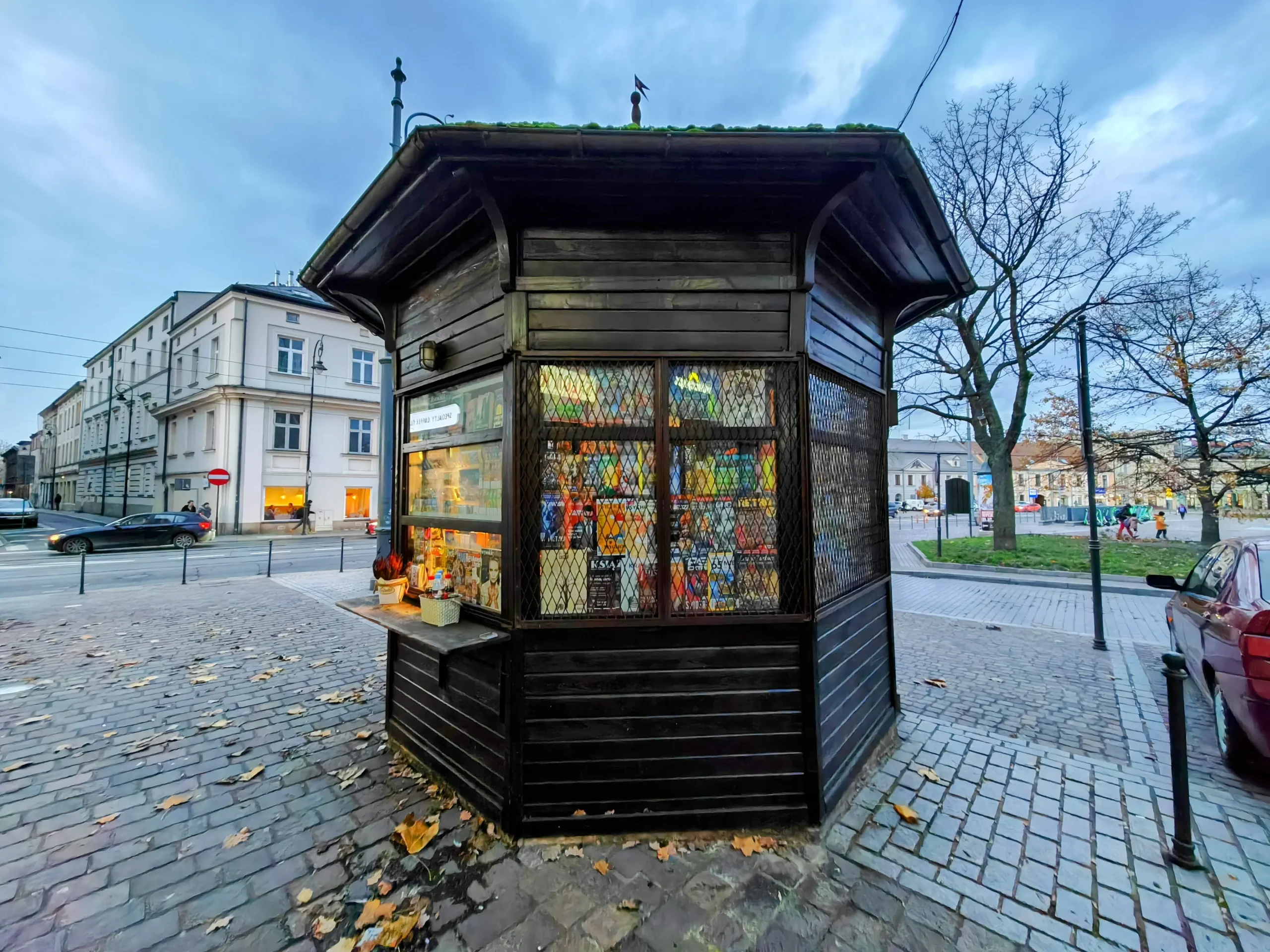Kiosks
A Reflection on Losing the Human Touch

Strolling through the streets, a rare sight caught my eye — a functioning kiosk, quietly standing amidst the sleek facades of modern retail. It felt like a whisper from a bygone era. The sight, paired with a conversation with a friend, sparked a thought: how much of the human connection in our daily lives has been replaced by convenience, efficiency, and technology?
The Kiosk: A Simple Space for Connection
Kiosks used to be everywhere in Central Europe. While they were simple shops for grabbing things quickly—they were part of the social fabric. You didn’t just grab a newspaper or cigarettes; you still had a moment of human interaction. The shopkeeper might ask, “Have you heard the news?” or suggest, “Need a lighter for those?” These exchanges weren’t grand, but they reminded you that life wasn’t purely transactional. They made even the mundane feel a little more connected.
The Shift to Self-Service
Over time, kiosks and small shops began to vanish, replaced by supermarkets and self-service stores. Shopping became faster and more efficient, but at a cost: the loss of interaction. The aisles were silent, and the checkout process became mechanical. Even butcher shops and bakeries, once places of friendly exchanges, adopted pre-packaged goods and grab-and-go models, reducing interaction to a polite nod or none at all.
The Online Shopping Revolution
The rise of online shopping accelerated this trend to its extreme. Now, buying something is as simple as clicking a button. The interaction, already minimal in a supermarket, has disappeared entirely. Even deliveries, which could still involve a moment of connection, have turned into packages left at the doorstep. The transaction is now cold, efficient, and entirely solitary.
Capitalism’s Drive for Efficiency
At the root of this shift is capitalism’s relentless pursuit of efficiency. Human interaction isn’t valued—it’s seen as a cost. Time spent talking is time wasted. Even when there is interaction, it’s transactional: “Would you like a chocolate bar for 50% off?” or “Do you have a loyalty card?” It’s not about connecting; it’s about upselling.
Every stage of this evolution—from small shops to supermarkets to e-commerce—has been driven by the same logic: prioritize speed, reduce costs, and streamline the process. But in doing so, we’ve stripped away the inefficiencies that made shopping—and by extension, life—feel human.
The Kiosk as a Metaphor
These thoughts about the kiosk are a metaphor for something larger: the steady replacement of the human with the efficient, the real with the virtual. Conversations with shopkeepers have become pop-up ads. Familiar faces have been replaced by automated checkout machines. Even relationships are increasingly mediated through screens and algorithms.
We’ve optimized our lives, but in doing so, we’ve lost something fundamental. Those small, inefficient moments—quick chats, shared smiles, the sense of being seen—are what ground us. Without them, life risks becoming a series of isolated transactions, devoid of the messiness and warmth that make us human.
A Question for the Future
The decline of the kiosk isn’t just a story about commerce—it’s a reflection of how far we’ve allowed technology and efficiency to reshape our world. In our quest for speed and convenience, have we unknowingly sacrificed the very essence of being human?
Maybe it’s time to rethink what we value. Not everything needs to be optimized. Sometimes, inefficiency is where the beauty lies—in the pause, the interaction, the connection. This kiosk I had seen, as a symbol, reminded me of what we’ve lost. The question now is whether we can reclaim it, or whether we’ll let the march of efficiency continue to replace everything human with everything efficient. So far it looks like it’s the latter…


